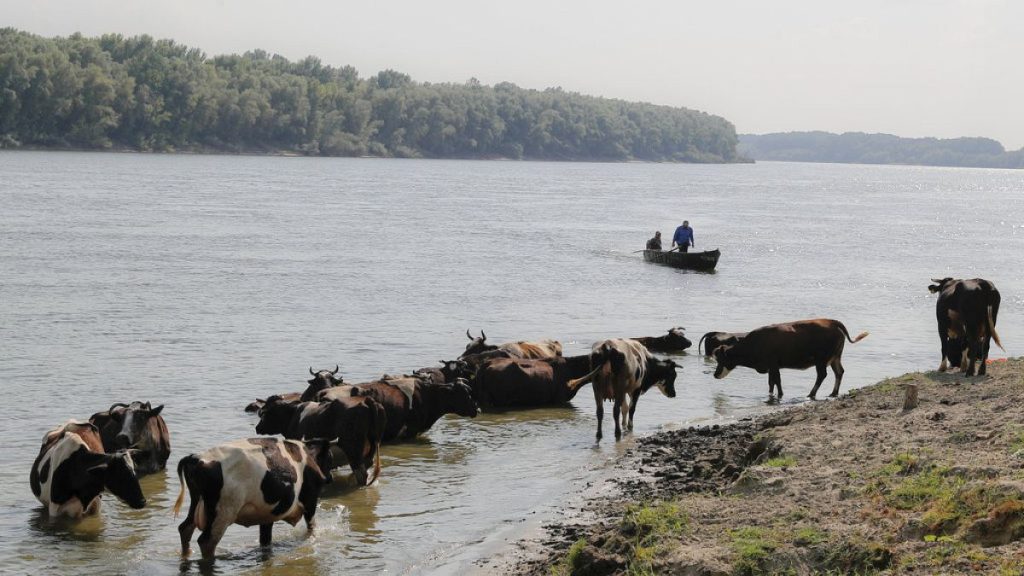The Danube River in Romania is facing unprecedented challenges due to the extreme heatwave that has been affecting the region. The water levels in the river are receding, with some areas experiencing levels that are as much as 6 cm below the normal range. This decrease in water levels is causing issues for navigation along the river, with only 2,900 cubic metres of water flowing per second, well below the average for August. Sailors are adjusting their travel paths to account for the shallow depths, and residents in the village of Corabia have noticed the impact on nautical traffic. Tourist boats are unable to leave the harbour, and commercial boats are struggling to make progress, leading to concerns about the economic impact on the region.
The head of Romania’s Danube navigation sector, Ioan Neacșu, has stated that the current situation is becoming the new normal for the drought-stricken area. He emphasizes the need for sailors to adapt to the changing conditions and find ways to navigate through the shallow waters. As Romania experiences one of the worst heatwaves in its history, there is a sense of hope that the shallow tides in the Danube will improve. However, the ongoing drought and extreme weather conditions pose a significant threat to the river and the surrounding communities that rely on it for transportation and commerce.
Residents of Corabia have observed the impact of the low water levels on the Danube near their village, noting that the tourist port is no longer usable. This has led to concerns about the economic consequences of the receding river, as tourist boats are unable to operate and commercial vessels are struggling to move through the shallow waters. The situation has prompted calls for action to address the underlying causes of the low water levels, including the effects of climate change and the need for sustainable water management practices in the region. The shrinking of the Danube River serves as a stark reminder of the urgency of addressing environmental challenges and working towards solutions to protect vital water resources for future generations.
The shrinking of the Danube River in Romania is part of a larger trend of environmental degradation caused by climate change and human activities. The extreme heatwaves and droughts that have plagued the region in recent years have taken a toll on the river and its surrounding ecosystems. This has led to concerns about the long-term impact on water resources, biodiversity, and the communities that rely on the river for their livelihoods. The receding water levels in the Danube serve as a warning sign of the need for urgent action to address the root causes of environmental degradation and protect vital ecosystems for future generations.
The challenges facing the Danube River in Romania highlight the interconnectedness of environmental issues and the need for collaborative efforts to address them. Climate change is a global crisis that requires coordinated action at the local, national, and international levels to mitigate its impacts and protect vulnerable ecosystems. The shrinking of the Danube River is a clear example of how climate change is affecting water resources and disrupting the lives of people who depend on them. It underscores the importance of adopting sustainable practices and policies to safeguard the environment and ensure the health and well-being of present and future generations.
The current situation with the Danube River in Romania serves as a wake-up call for policymakers, businesses, and individuals to take decisive action to combat climate change and protect vital water resources. The shrinking of the river is a stark reminder of the consequences of inaction and the urgent need for sustainable solutions to address environmental challenges. It is essential for all stakeholders to work together to implement measures that promote water conservation, climate resilience, and ecosystem protection. By prioritizing the preservation of the Danube River and other vital waterways, we can help ensure a more sustainable future for our planet and all of its inhabitants.


